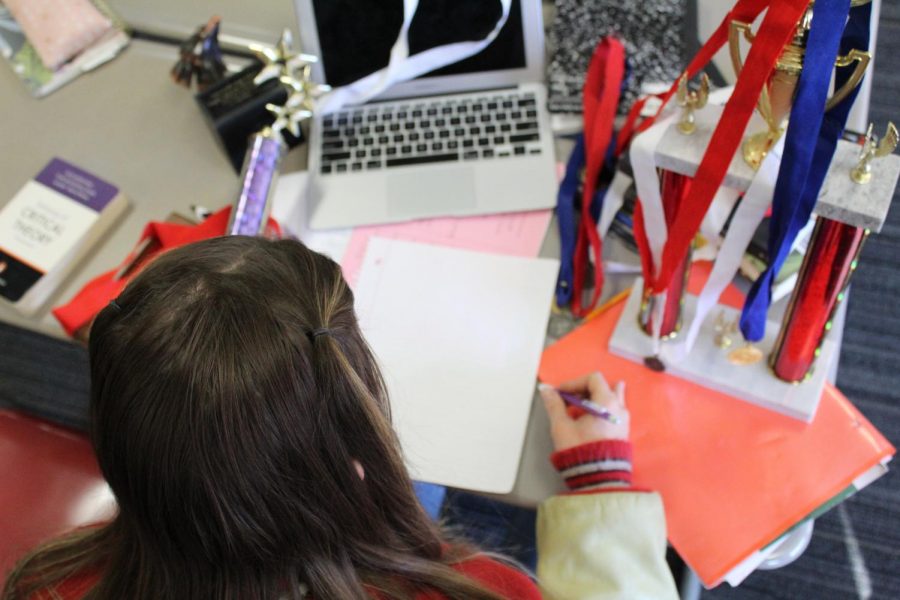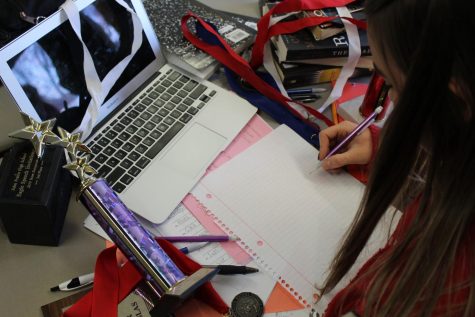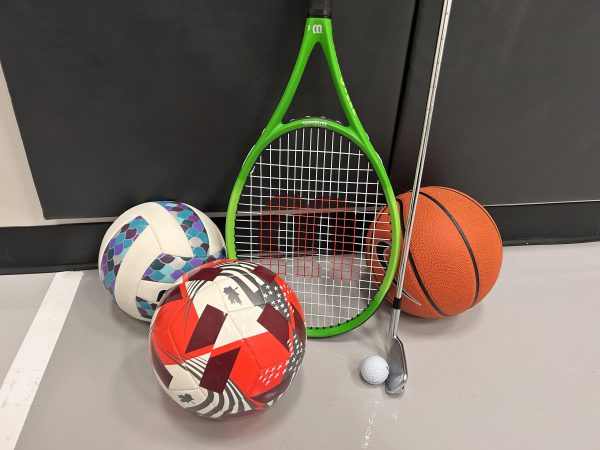The impact of being called a ‘try-hard’
As many students work on assignments and projects, they are being labeled as “try-hards.” This badge is impacting the way students view their school work and themselves.
Both teachers and students have noticed the use of ‘try-hard’ as a label given to students who try hard at school, athletics, or activities.
Commonly heard in classes, in hallways, and on teams around BSM, ‘try-hard’ seems to be the latest insult. Of 167 students surveyed, 83.3% have been called a try-hard or something similar. Although most students use the phrase as a joke between friends, teachers and coaches worry about its dangerous implications. It has the potential to stigmatize effort if taken too seriously, leading to a student body that works hard to not work.
The use of ‘try-hard’ as a light insult begins in the BSM junior high. Mr. Greg Hoemke, a junior high English teacher, sees it frequently in his classes. Students in his classes, past and present, are sometimes ashamed of their success. “Kids don’t wanna stand out as… the smart kid…I’m very careful about celebrating success unless I know it’s a student that’s okay with it. Because that can be very embarrassing to some students, particularly in junior high,” Hoemke said.
It is difficult for students to try hard in school or in sports because they’re seen as annoying. Even though the phrase is largely used as a joke, the image of the annoying try-hard student persists. “[A try-hard] tries excessively in a game or sport or something when they didn’t have to, and they’re, like, taking the fun out of it… I just think that they take the fun out of games,” freshman Miguel Nuñez-Mudoy said. Kids don’t wanna stand out as the smart kid. — Mr. Greg Hoemke
Hoemke has seen the stigma around being a try-hard translate into a student’s worldview. Last year, he asked eighth grade students to write about the legacy they wanted to leave behind at BSM. One student wrote about anonymity: he wanted to be seen as average. “He did not want to be perceived as smart… he was one of the smartest kids in the class. He was a fantastic writer. Really good thinker, had great ideas, but he was very leery of that perception that friends were gonna point to him and say, ‘That’s the try-hard,’” Hoemke said.
Students recognize a difference between a try-hard and a hard worker, but when it comes to tossing around ‘try-hard,’ this distinction isn’t always clear. Senior Veronica Nowakowski thinks the phrase ‘try-hard’ is overused for this reason. “I always thought of try-hard not as somebody who’s working hard, but as somebody who’s over-bragging about how much they work hard,” Nowakowski said.
Despite how often the phrase is thrown around, there is a constant worry that taking the insult seriously can actually hurt a student. Audrey Taylor is an eighth grader at BSM who mainly sees ‘try-hard’ as a joke, but also recognizes that it could have consequences. “Some people, it might actually hurt their feelings because they think they’re doing well or trying hard’s what they do because they want to succeed. But if you tell them that trying hard is [bad] because you wanna look cool and you insult them because of it, that might lower their self-esteem and make them feel bad,” Taylor said.
When students are insulted for their hard work, there’s a shift in sources of pride. Suddenly, rather than students bragging about their hard work, they brag about their lack of effort. The survey of 167 students, both senior and junior high, showed that 74.3% of people think it’s common for others to lie and claim they studied less, and 35.9% of them have done so themselves. “Now it’s a brag, like, ‘Oh, I only studied thirty minutes…’ That’s kinda like the dialogue that students have with each other, and I think that’s harmful,” Nowakowski said.
But at BSM, success is still celebrated. Students boast about their highest grades, and many of them have high aspirations for college in the future. “I think students in this school… they’re proud of their grades… They want to get into good schools and be highly successful. I think it’s okay at this school to be smart,” Hoemke said. Now it’s a brag, like, ‘Oh, I only studied thirty minutes…’ That’s kinda like the dialogue that students have with each other, and I think that’s harmful. — Veronica Nowakowsi
This means that at BSM, students brag about working very little, but they still crave success. In a survey conducted by the Knight Errant, 81.4% of students said they believed there is a culture of talent at BSM: students believe, or at least hope, that their natural talent can take them all the way. For students seeking success and avoiding insults, It seems better to rely on talent when you run the risk of working hard and being labeled a try-hard. “You kinda don’t want to be known as a try-hard, and you want to be known as… you were born that way, you’re just special,” Taylor said.
But the view is quite different from a teacher or coach’s perspective. They don’t see the annoying side of ‘try-hards,’ only the hardworking side that propels students to good grades or victorious games. “Fulfillment of your talent, working to the best of your ability… if that’s a try-hard, I want all the kids to be try-hards. As a coach… I’ll tell you every coach wanted to have try-hards… I could care less how talented they are, but if they were try-hards, we would win all the time,” Hoemke said.
Teachers also believe that passing on talent alone will eventually fail students. One place where this catches up to students is in AP classes. Mrs. Cherie Vroman teaches AP European History and AP Human Geography. She has not seen ‘try-hard’ used in her class. She thinks most AP students are ready and willing to put in hard work, and if they don’t, they won’t be successful. “Every student has usually an area where they have a natural talent… I find [that] kids in social studies who have a natural talent, when they get into AP Euro, which is one of the hardest courses, they still have a little bit of an edge because they have that natural talent. But almost always they’re gonna have to start doing some work. So I think it helps, but… at some point it will not be enough,” Vroman said.
There are clearly dangers if ‘try-hard’ is taken too far. But BSM students seem to recognize that this joke should remain a joke. They want to succeed, and on a serious level, they see that hard work is needed to get there. “I think [try-hards] should be more respected. They seem to be frowned upon but I think they will go further in life,” senior Toby Curtiss said.



















































